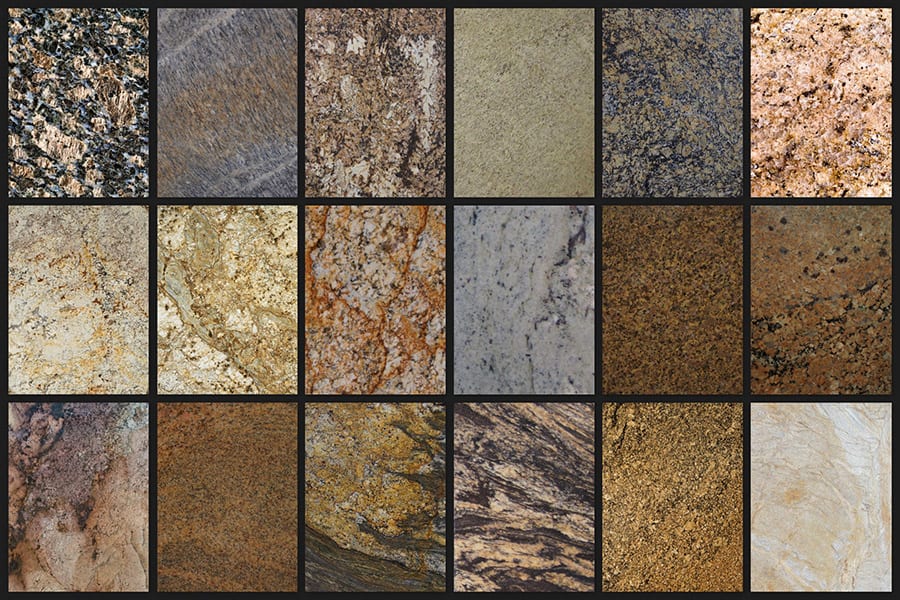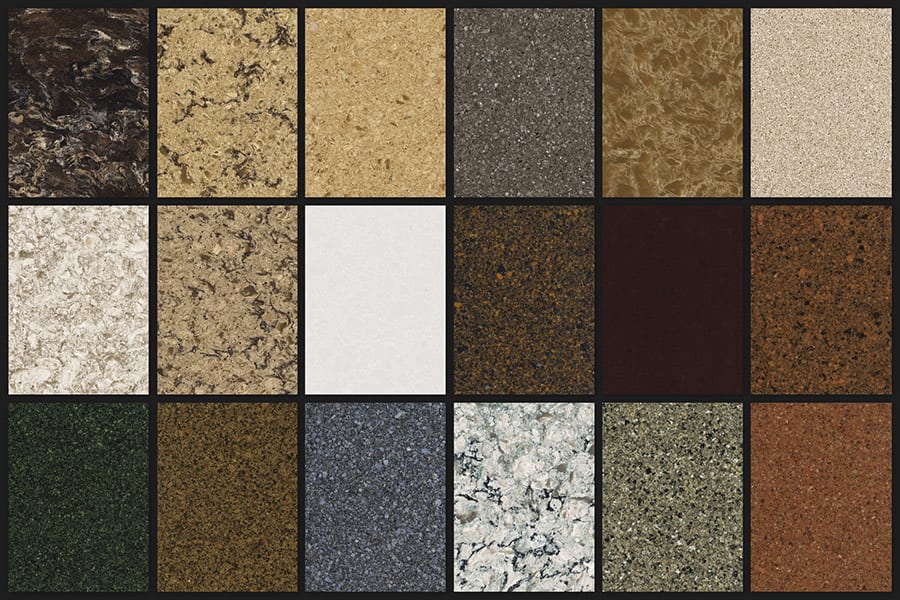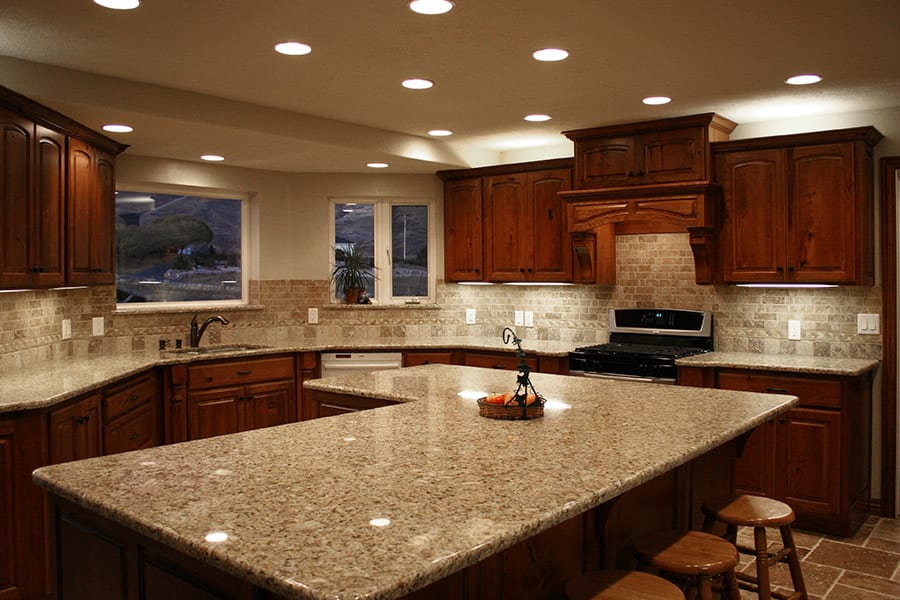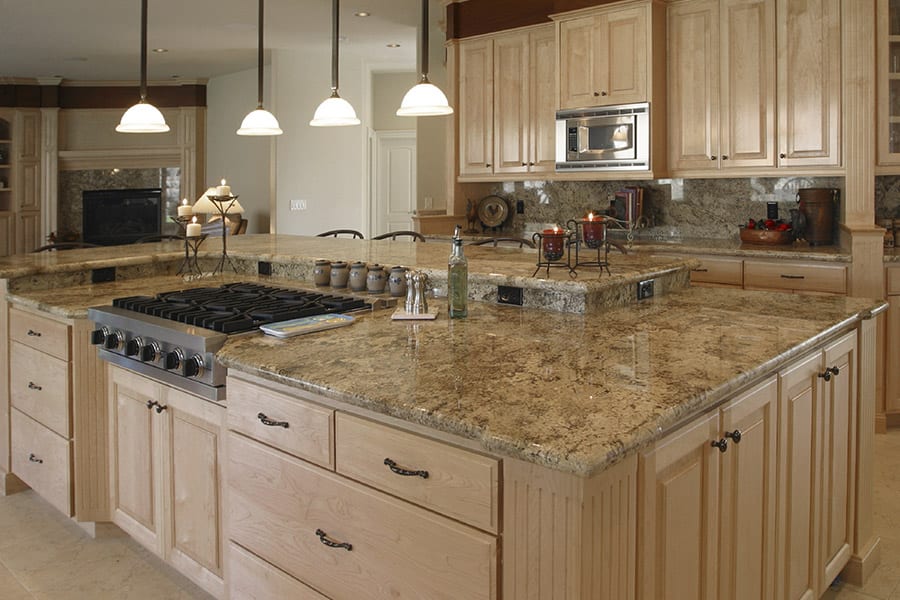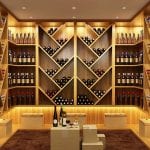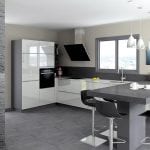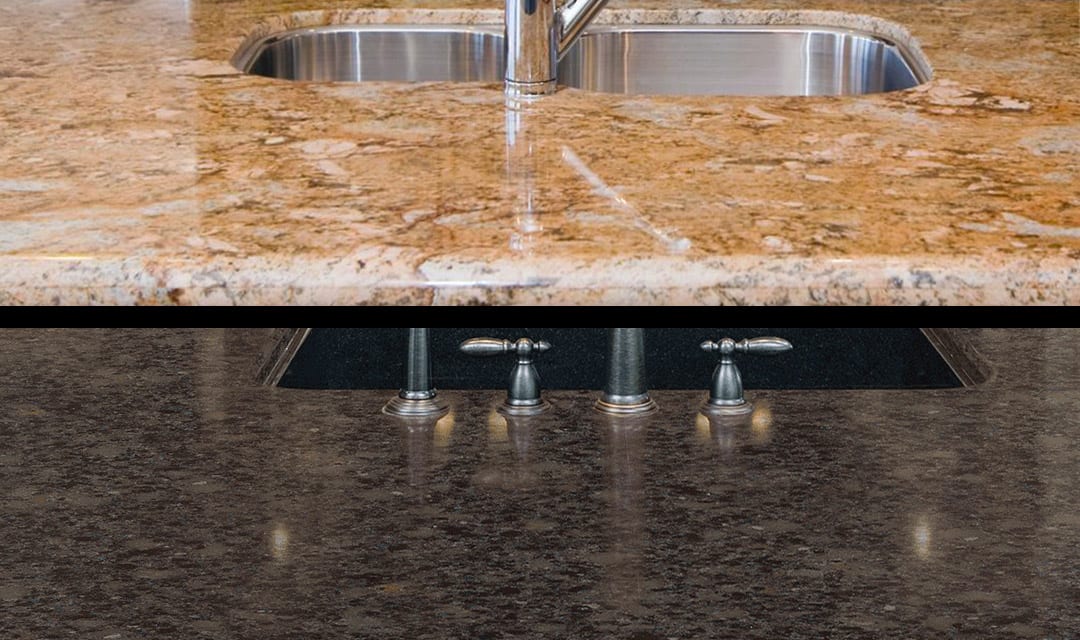
Granite vs. Quartz Countertops
My Mom who lives here in Colorado Springs writes:
“Son, why are you writing about soapstone and sandstone? Don’t you know we all want to know what’s best for countertops … granite or quartz?”
“And will you be coming over for dinner Sunday evening?”
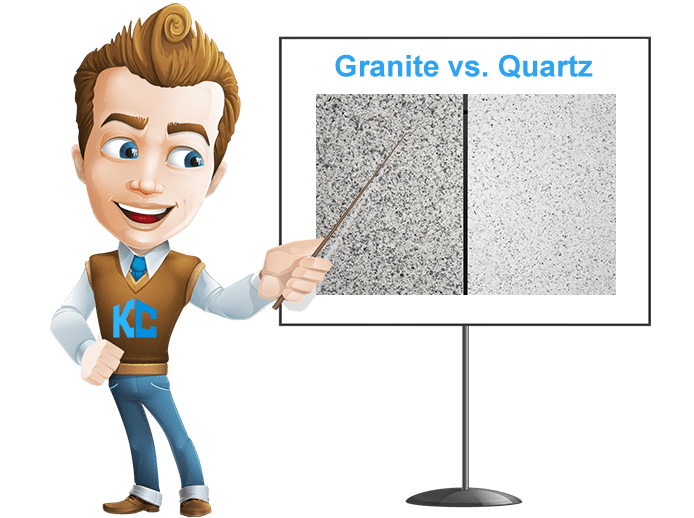
Mom has a point! (Don’t they always?) The runaway favorites in natural stone countertops are granite and quartz. Here are last year’s sales statistics from the National Kitchen & Bath Association:
Quartz:
Marble:
Other Stone:
35%
18%
10%
Those sales figures are about what we see here in Colorado Springs with a little less interest in marble. While granite has been the leader for years, quartz is gaining popularity steadily and will likely be the number one choice by the end of the year.
There are few design elements that spark heated debate and divide homeowners as much as granite versus quartz. Don’t believe Dudley Design? Tune into any episode of House Hunters and you’ll likely hear the prospective buyer or renter wax poetic about their preferred countertop material and shun the other vehemently. But is one really better than the other or is it merely a matter of pure aesthetics?
To help break down the granite vs. quartz quandary, Dudley Design came up with five categories to help show the differences between the two. Before we get into all of that though, what exactly are granite and quartz?
Granite is a very hard stone and 100 percent natural. It’s mined from quarries all around the world, cut down to a manageable size, and then polished to a fine finish. The geological differences in the widely separated global regions mining granite account, in part, for the broad diversity of available styles and colors. This wide array of colors are all natural as you can see in the very small representative set of granite samples above.
Quartz is slightly different in that it is not 100 percent natural. Instead, countertops are manufactured using 95% ground natural quartz and 5% polymer resins. Sometimes color pigments are added. It comes in an ever wider array of colors as you can see in the again very small representative set of quartz samples above.
Now that you know the basics, let’s see how they compare against each other.
Appearance
Granite:
Granite comes in many different colors and patterns due to the way it’s formed (cooling and solidifying of molten lava and other materials). Whether you are looking for a subtle compliment to your kitchen or a standout slab with unique mineral inclusions, there is an almost limitless selection to choose from and no two granite countertops are the same. You’ll find more granite in high-end homes than quartz … it’s definitely the snooty choice!
Quartz:
One of the main reasons quartz has exploded in popularity is due to its appearance. Quartz has the look of stone but varies less in appearance from slab to slab making it easier to match and seam. While we may have to special order an odd color for you, about any hue of the rainbow is available in quartz allowing homeowners to “customize” the stone component in their interior design. While granite also offers many options in terms of appearance (and they’re all natural), you may have to search for the right piece that matches your color scheme. With quartz, the selection process is much easier.
We invite you to tour our local Colorado Springs granite and quartz inventories and see the wide array of colors and styles for yourself. Just give Kitchen Concepts a call at 719.330.5474!
Price
Granite:
Granite is available in a wide range of prices and can cost less than quartz in the more common and widely available grades and also substantial more than quartz in the rare and exotic varieties with unique patterning and colors. Granite comes to you from six of the world’s seven continents and, while Dudley Design’s not sure, may even be quarried in Antarctica! You can see granite samples in all price tiers by clicking here. The Group 1 granites are the lowest price with successively higher prices in Group 2 and Group 3.
Quartz:
The above means quartz prices are somewhat “in the middle”. As quartz requires less maintenance than granite, it’s likely the long-term price leader (more on that later). Also be aware that engineered quartz is heavier than granite and other natural stone surfaces and may require extra supporting infrastructure. Your Kitchen Concepts installation team will make sure there are no issues with this and that your new kitchen or bathroom countertops will be absolutely structurally sound.
Environmentally Friendly
Granite:
The only way granite ends up in your kitchen is if it’s quarried and that uses a lot of energy. If you opt for a high-end piece of granite from half-way around the world, as an example, there will be considerable transportation involved. Not all granite comes from distant locations; Gong Granite can show you numerous choices that are indigenous to North America.
Quartz:
Since quartz countertops are engineered, they can be more environmentally friendly than granite if you use regionally manufactured stone and local fabricators like Kitchen Concepts. This cuts down on the distance the material needs to be transported and we can again show you choices from near-by manufacturers.
Maintenance
Granite:
Granite countertops should be cleaned as used with soap and water or your mild kitchen and bath cleaner of choice. A few oils and acids can stain granite so do your homework to keep these “toxic” liquids off your granite. We can give you a short list of potential “problems” to avoid. To ensure the longevity of your granite investment, we recommend having your granite countertops professionally resealed by Kitchen Concepts ever 12 to 18 months (depending on your usage).
Quartz:
Like granite, you’ll want to clean any spills on quartz countertops with soap and water or your household cleaner but that is about it in terms of maintenance! Quartz’s solid, non-porus surface means that there is no need to have your countertops periodically resealed!
Durability
Granite:
Granite is a durable material that’s resistant to heat and many other kitchen elements. Consumer Reports says “Granite survived our spills, hot pots, knives and more with top scores.”
Due to its porous nature, though, there can be some staining if spilled liquids are left sitting and damage can be done if your counter receives a high impact blow.
See Dudley Design’s articles on cleaning granite here and re-sealing granite here.
Quartz:
Quartz is actually harder than granite and thus, more durable. In fact, quartz is nearly indestructible, and because it isn’t porous like granite, it is easy to keep your countertops relatively bacteria-free. Be careful with cooking pans though, the resin in Quartz can be damaged by excessive very high heat. Use pot holders at all times!
Consumer Reports says “Quartz survived a gauntlet of spills, hot pots, knives and more with top scores; and it doesn’t have to be sealed for stain protection.”
Dudley Design’s Conclusions
On the surface (pun is intended), quartz appears to be the winner. It’s easier to maintain, longer-lasting, more environmentally friendly and easy to customize to your tastes. However, it can be pricey depending on the options you choose and the uniqueness of granite, still my favorite, remains appealing to many. Consider your budget and specific needs before making a decision but you really can’t go wrong with either choice!
Don’t guess about the cost of new countertops … use the form below to request a free, no obligation quotation for your kitchen or bath! If you prefer, feel free to call Dudley Design, we have offices in Denver (720.725.0000) and Colorado Springs (719.330.5474).
And “yes” Mom, I will be over for dinner Sunday evening.
Ask a question or request your free estimate!
Call (719) 330-5474
or
complete the form below.

Serving Denver, Colorado Springs and surrounding communities!
Search The Site
Translate This Page
 |
Need landscaping? Visit our Landscape FX sister company's website by clicking here! |

